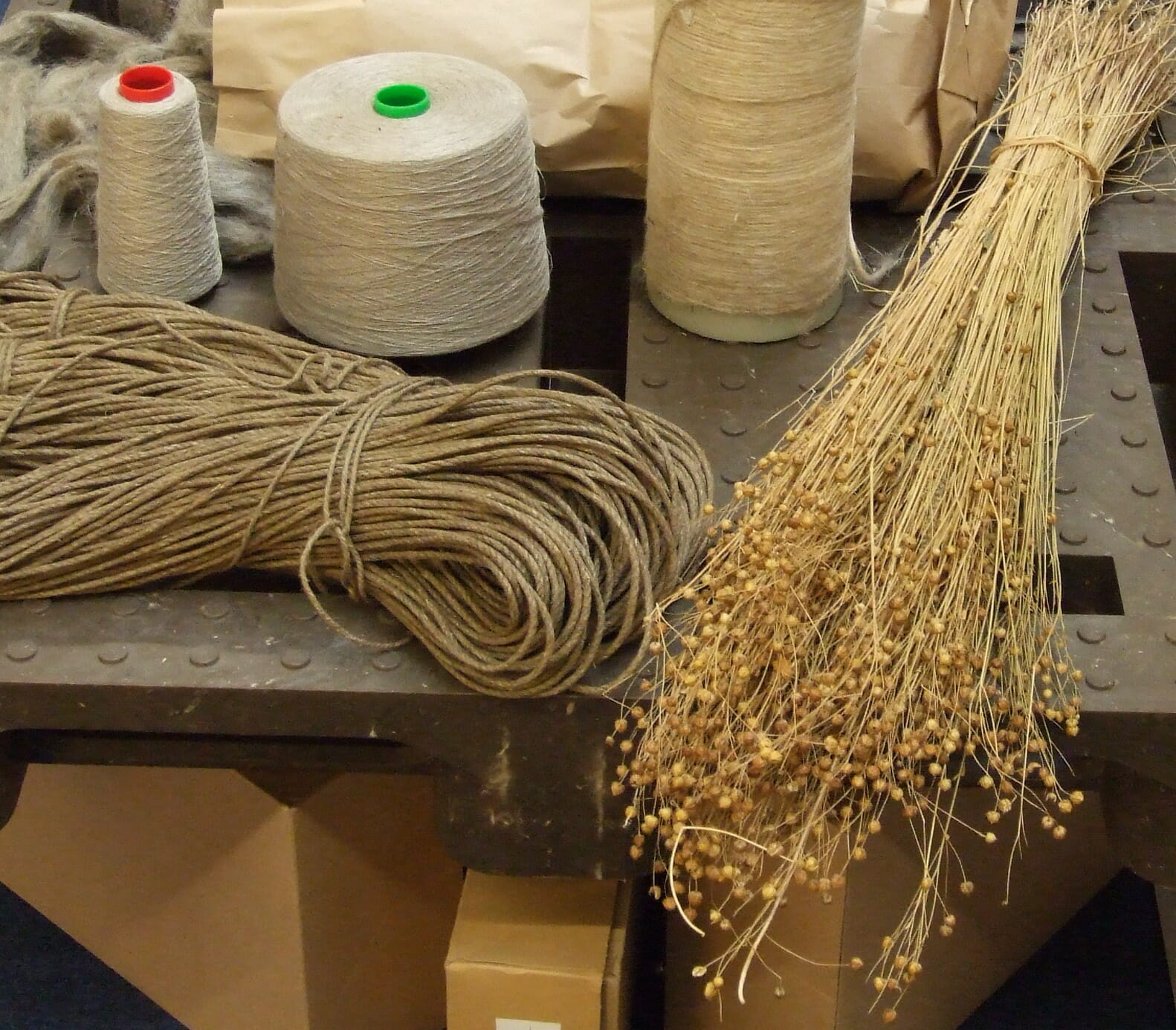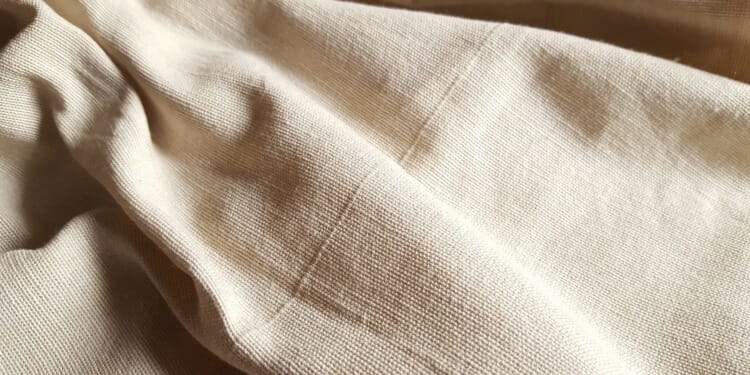Linen is a natural fiber widely used for clothing, furniture, and homeware that comes from flax, a plant that grows in the temperate climates of Europe. Though varying qualities are available on the market, really good quality linen is still considered a luxurious fabric. Because of geographical limitations and a labour intensive and time-consuming manufacturing process, linen is a more costly to produce than cotton, which is more widely cultivated. But out of the two, it is the more sustainable option, as flax requires less resources to produce, putting less strain on the environment. Here are other factors that make flax a sustainable crop:
- It’s not water-intensive, rainwater and morning dew is enough to sustain its growth in the temperate climate it thrives in. On average, flax plants needs 60% less water than cotton.
- It’s resistant and has few natural enemies, therefore reducing the need for pesticides or genetic modification. Flax can grow in poor quality soil, which means it won’t take up land that could otherwise be used for food production.
- It improves soil quality, making it an ideal choice for rotating crops.
- It absorbs large amounts of carbon dioxide. One hectare of flax can absorb more than 3.7 tons of carbon dioxide every year.
Production
After being harvested, the fibers must be loosened from the flax stalk, which is achieved by exposing the plants to moisture so that bacteria can break down the woody tissue and free the fibers. This process, known as retting, is time consuming, so to speed it up some manufacturers use chemicals to break down the sinewy flax stem. Heritage techniques, by contrast, rely only on nature’s elements, like the sun and rain, to break the plant down, making it the more sustainable option.
Other chemicals that may be introduced in the production process are dyes and special treatments to soften and smoothen the fabric. Softer linen, made from longer, better quality flax stems, has less wrinkles and therefore does not require as much chemical processing as rougher linen made from shorter stems.

Transportation
Flax grows in the temperate climates of North America and Europe, but it has also historically been cultivated in the Mediterranean and India. As with most textiles, China is currently the largest producer of linen. While European countries like Italy, France, and Belgium remain significant producers of high quality linen, the majority of flax is actually processed in Asia, as labour costs are much lower and linen is very labour intensive to produce. This movement of raw materials and finished products across continents produces CO2 emissions that ultimately increase the linen industry’s carbon footprint.
Types of Linen
Because of its thermoregulatory properties, flax is a fantastic alternative to cotton in the summer months, and to wool in the winter. However, not all linen is created equally and it’s important to discern what is actually sustainably produced. Here are the three main types of linen you can find on the market:
- Pure Linen: Made entirely from the natural fibers of the flax plant. Its quality is determined by the length of the fibers, with the longer more refined fibers reserved for bed linen whilst the short fibers are spun to create a hardy textile more suited for upholstery and sturdier clothing items.
- Organic Linen: Grown on certified organic farms that are pesticide-free. Look for the Global Organic Textile Standard (GOTS) label, an assurance that the process did not involve pesticides, chemical retting or artificial dyes.
- Linen Wadding: A mix of natural linen fibers and a synthetic one, like polyester. This is done either to reduce the cost of the fabric or to allow it to better suit a particular item of clothing.
To cut costs, many fast fashion retailers use the shorter, rougher fibers, and rely heavily on chemical treatments to soften them in as little time as possible. While they are technically still able to legally claim that their products are 100% pure linen, this should not be understood to mean that they are sustainable.
To avoid these traps, it’s best to choose organic European linen, made and processed in Europe from long, good quality fibers that are processed as cleanly and with as little chemicals as possible.
Editor’s Note: The opinions expressed here by Impakter.com columnists are their own, not those of Impakter.com. — In the Featured Photo: Organic linen fabric. Featured Photo Credit: Spectagal










